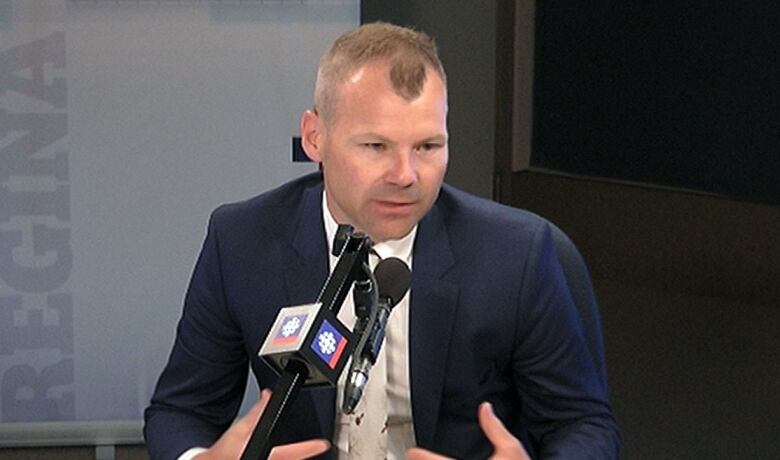Sask. government calls its climate change readiness report results 'encouraging'
First annual report card tracks progress of 25 measures

The Saskatchewan government released its first climate change readiness report on Wednesday.
The report is part of the province'sclimate change strategy, which it calls Prairie Resilience. This annual report card tracks the progress of 25 measures to determine how the province is combating and preparingfor a changing climate.
"Resilience to a changing climate is just as important as reducing our own provincial emissions," Environment Minister Dustin Duncan said.
"We believe in Saskatchewan we emit about 75 million tonnes of carbon dioxide per year," he said.
"If we reduce that to zero, global climate change is going to continue, and so knowing that, we want to ensure we are setting the province up right for being resilient to the ongoing effects of climate change."
Thestrategy aims to "reduce greenhouse gas emissions and prepare for changing conditions such as extreme weather, drought or wildfire," the province's website says.
The 39-page report breaks down the 25 measures in detail. They are separated into five categories:natural systems, physical infrastructure, economic sustainability, community preparedness and human well-being.
"Assessing and improving on these 25 measures will help people and communities across the province to cope with, adapt to and recover from the inevitable stresses of climate change and extreme weather," Duncan said.
The province's report card grades 15 resilience measures as "good" (trending up) and seven as "fair" (maintaining). There are no grades for three measures and nothing received a grade of "poor."
"The overall status of the measures is encouraging," Duncan said.
"This report indicates where we are demonstrating desirable results, and also where we may need to improve going forward to keep communities and families protected from the impacts of climate change."
Not taking climate change seriouslyenough: NDP
NDPLeader Ryan Meilisaid the provinceshould be doing more to invest in renewable energy sources like wind and solar.
Meilisaid Canada is the world's ninth-largest emitter, while Saskatchewan is the largest emitter per capita in the country.
"Climate change is the most important issue facing the world right now," he said.
"Saskatchewan is a wealthy place, a place with a great deal of opportunity. We should be taking the lead and showing how it should be done. We should be taking advantage of the opportunities in solar and wind in a much more meaningful and impressive way than we are."
Meili said the province's Prairie Resilience plan has holes, and the government is not taking climate change as "seriously as it should."
Summary of progress
Natural systems:
By 2020, the province aims to have 12 per cent of its terrestrial and aquatic ecosystems land protected. As of 2018, it has reached nine per cent.
Physical infrastructure:
Five out of seven measures in this category were graded as fair, includingrenewable energy generation capacity. The province's goal is to reach 50 per cent renewable by 2030. As of 2018, it is at 25.4 per cent.
On greenhouse gas emissions, the province's target is 8.52 million tonnes CO2e(carbon dioxideequivalent) emissions from the electricity sector by 2030. As of 2017, there were 15.96 million tonnes CO2e emissions from the electricity sector.
Economic sustainability:
The province seeks to reduce GHGs from gas produced in association with oil. It has a goal of 6.4 metric tonnes (MT) by 2025. It is reporting 9.1 MT of produced in 2018, which is down from 2015 levels.

Community preparedness:
The province is aiming to have every community at risk of flooding to complete floodplan mapping. The status of this is being determined and was not graded.
Human well-being:
The province started measuring communities vulnerable to drought in 2018. It is is hoping to decrease this number. The first measurement indicated 26 communities have water supplies vulnerable to drought.












_(720p).jpg)


 OFFICIAL HD MUSIC VIDEO.jpg)
.jpg)



























































































